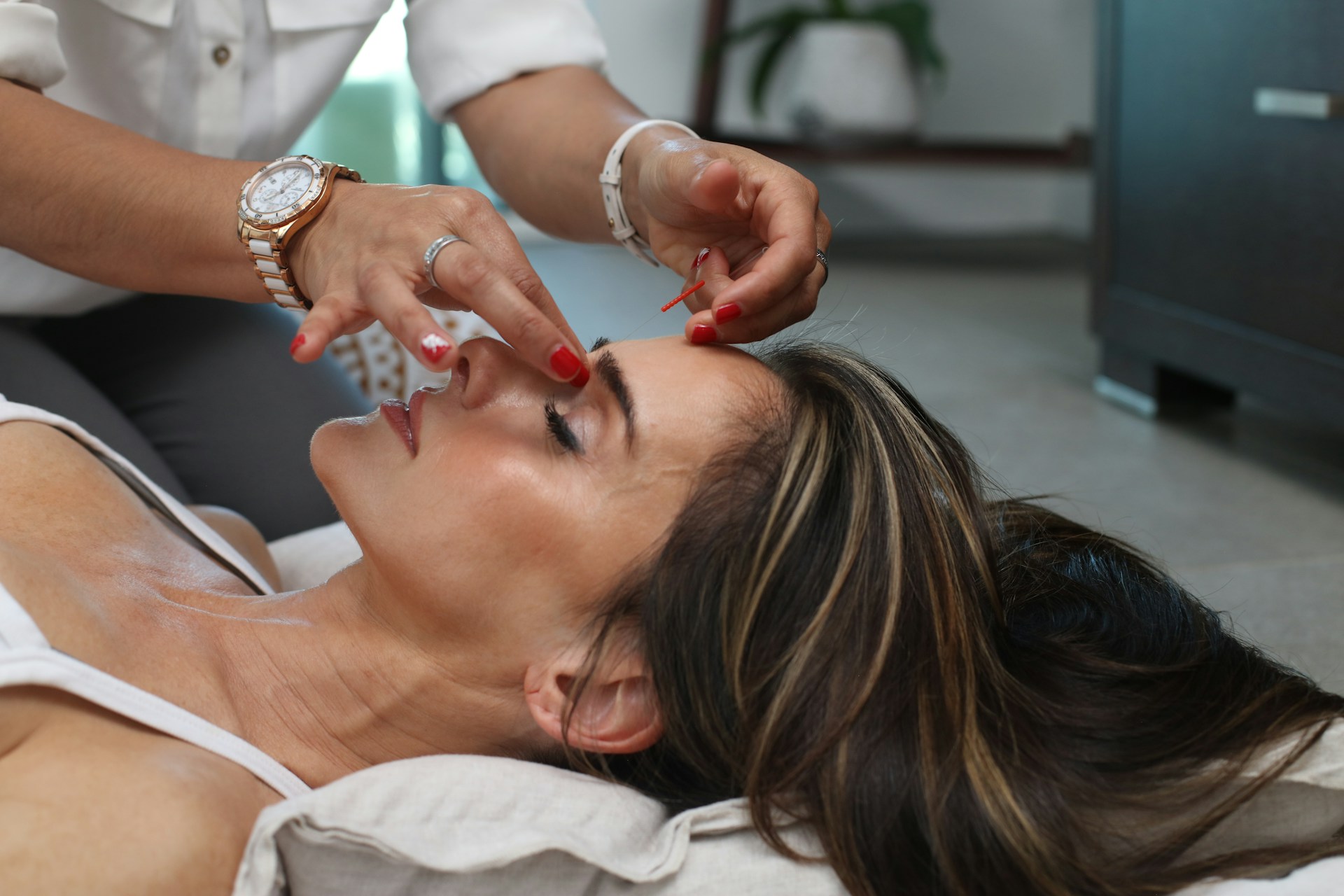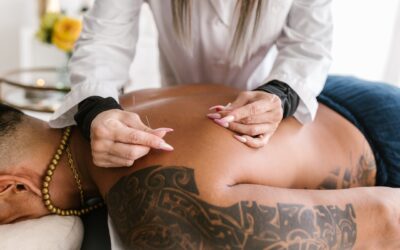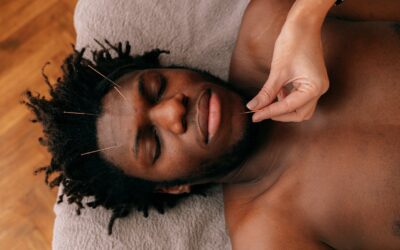Sleep is when the body restores, rebalances, and renews. But when it’s hard to fall asleep, stay asleep, or feel rested in the morning, the effects reach far beyond a little yawning the next day. Over time, disrupted rest can leave you with low energy, a foggy mind, and less resilience for everyday challenges.
For some, the source of poor sleep goes deeper than a noisy environment or the wrong pillow. It may be connected to the body’s stress levels, unbalanced rhythms, or a busy mind that’s hard to quiet at night. Acupuncture offers a gentle, natural way to support better sleep patterns, helping many people create a more restful routine without depending solely on sleep aids or rigid schedules.
Understanding Sleep Disruptions
Occasional restless nights happen to everyone. But when disrupted sleep becomes common, it can influence mood, focus, and overall well-being.
Sleep disruptions may look different for each person:
- Falling asleep easily but waking in the middle of the night
- Lying awake for long stretches before drifting off
- Sleeping at irregular hours that don’t match daily routines
- Feeling “tired but wired” at bedtime
- Waking earlier than desired without returning to sleep
In Scottsdale, August’s long, hot days and seasonal transitions can add another layer to sleep challenges. Changes in daylight and temperature may influence the body’s natural rhythm, making it harder to settle into consistent rest.
How Acupuncture May Support Sleep
Acupuncture works by gently stimulating specific points on the body, which may influence how your nervous system and energy flow respond to stress, relaxation, and rest. These points are part of pathways, sometimes referred to as meridians, that traditional Chinese medicine associates with different organs and functions in the body. By targeting specific points, acupuncture may help encourage balance and calm, which may make it easier for the body to shift into a state where sleep may occur more naturally, rather than trying to force rest.
During a session, hair-thin needles may be placed on points selected for your unique needs and patterns. Each point may be chosen for a specific purpose, such as:
Yin Tang (between the eyebrows): may help quiet the mind, ease mental restlessness, and promote a sense of stillness
Heart 7 (near the wrist): may support emotional steadiness, which may make it easier to settle into rest
Spleen 6 (on the inner leg): may help regulate hormonal and emotional responses, which may play a role in sleep quality
Anmian (behind the ear): traditionally used and may support healthy, steady sleep rhythms
These points may work together to address different aspects of rest. For example, some points may help quiet mental activity, while others may support hormonal balance or ease physical discomfort. By guiding the body toward a state of equilibrium, acupuncture may help set the stage for more consistent, restorative sleep.
Potential Benefits of Acupuncture for Sleep
When sleep feels unpredictable, the impact can show up in everything from morning energy to evening mood. Acupuncture offers a supportive option that works with your body’s rhythms.
Some potential benefits may include:
- Improved sleep quality: Falling asleep more easily, staying asleep longer, and feeling more refreshed upon waking
- Greater evening relaxation: A calmer mind and more relaxed body may make it easier to drift into rest
- Support during hormonal changes: Gentle support for transitions that can influence sleep patterns
- Gradual improvement: Some people may notice changes within a few sessions, while others may experience results over time
What to Expect During a Sleep-Focused Acupuncture Session
Your first appointment typically begins with a conversation about your sleep habits, lifestyle, and overall health. This helps guide the choice of acupuncture points to support your goals best.
During the session:
- Wear loose, comfortable clothing
- Share any patterns you’ve noticed in your sleep
- Relax on a comfortable treatment table for about 30-45 minutes
- You may notice sensations such as warmth, tingling, or calm. Some people even fall asleep during treatment.
Consistency often plays a role in results. Some may feel changes right away, while others may notice gradual improvement over several visits.
Restful Nights in Scottsdale
Scottsdale’s warm climate and bright days can make slowing down at night a challenge. Acupuncture provides a gentle, personalized way to support the body in finding its natural rhythm again, helping rest feel more accessible.
At Alivia Acupuncture Clinic LLC, treatments are designed to meet your unique needs and goals. Each session focuses on creating space for relaxation, balance, and restoration, so that rest can become a natural part of your nights again.
This information is intended for educational purposes only and does not provide medical advice, diagnosis, or treatment. Acupuncture is not a substitute for professional medical care. Please consult your primary care provider or a qualified healthcare professional regarding any health concerns or before beginning new treatments. Individual experiences may vary.





0 Comments